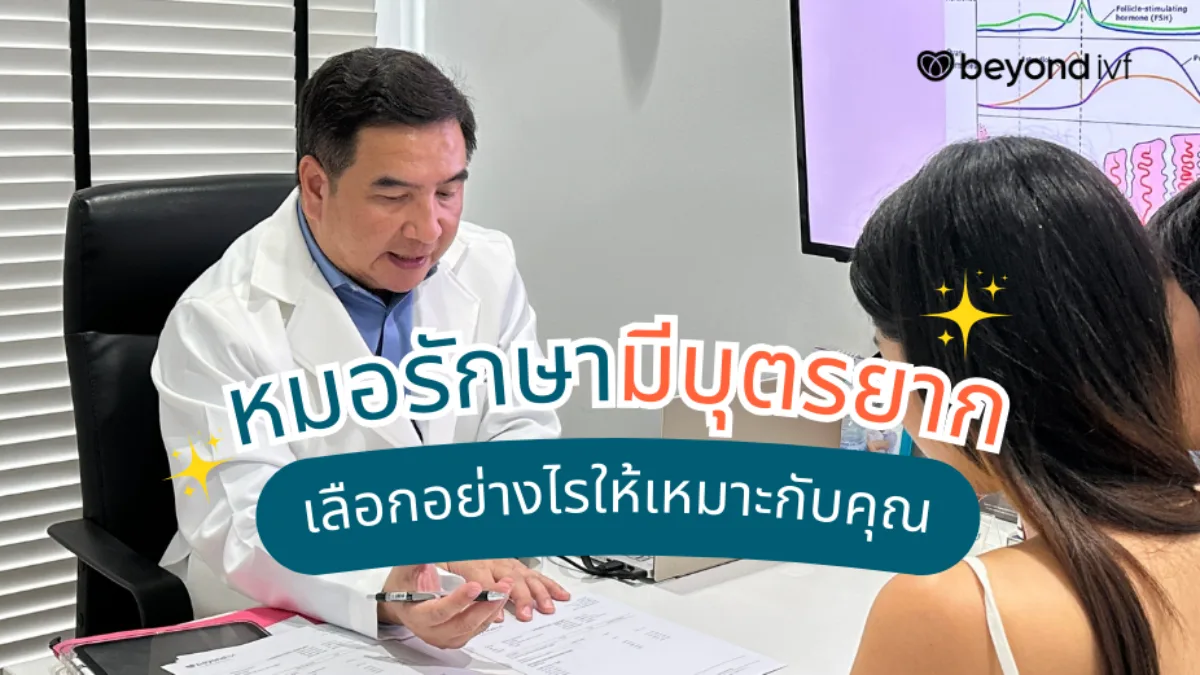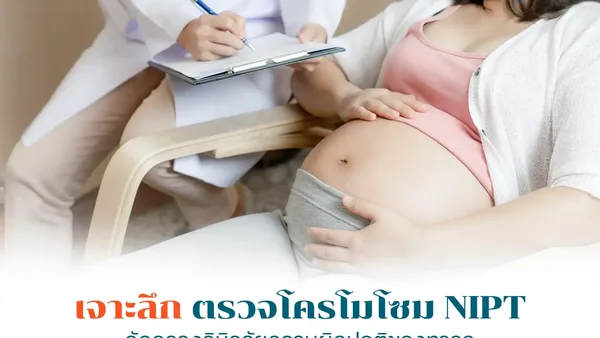Is There Really a “Best” Fertility Doctor?
When it comes to fertility treatment, it’s difficult to say that there is one single “best” doctor. Each specialist has their own unique approach to diagnosis and treatment, tailored to individual patients. That’s why rather than searching for the most famous doctor, it’s more important to find a fertility specialist who can address your specific concerns, has extensive experience, and is supported by a team of professional physicians and well-trained scientists.
Today, we’d like to guide you through understanding what fertility specialists do — and how to choose the right doctor for your journey.
What Is a Fertility Doctor? What Type of Specialist Are They?
Not every doctor can treat infertility. Fertility treatment must be provided by an obstetrician-gynecologist (OB-GYN) who has undergone further training in Reproductive Medicine — a subspecialty focused on diagnosing and treating disorders of the reproductive system and infertility.
While general OB-GYNs are skilled in prenatal care and childbirth, they may not have the specialized expertise required for fertility treatments. That’s why it’s important to consult a fertility doctor — a medical professional specifically trained in reproductive medicine — to receive the most accurate diagnosis and the most effective treatment plan.
Where to Find a Fertility Doctor – and How to Choose the Right One
Many people look for “the best” fertility doctor, but in reality, choosing the right doctor for infertility treatment should be based on more than just reputation. The ideal doctor is someone who makes you feel comfortable, understands your unique concerns, and has extensive experience treating infertility.
An experienced fertility doctor can accurately identify underlying issues and design a treatment plan that maximizes your chances of success.
At BeyondIVF, you can schedule a free consultation with a fertility specialist. This gives you the opportunity to discuss your concerns and see if the doctor’s communication style and approach are the right fit for you — before committing to treatment.
Dr. Ton – Dr. Poonsak Suchonwanich Fertility Specialist at Beyond IVF
Dr. Ton (Dr. Poonsak Suchonwanich) is a highly experienced fertility specialist at Beyond IVF, with over 20 years of experience in treating infertility. He is widely respected in the field and holds numerous qualifications that reflect his expertise, including:
- Doctor of Medicine from the Faculty of Medicine, Ramathibodi Hospital, Mahidol University, Bangkok (Graduated in 1993)
- Board Certification in Obstetrics and Gynecology from the Faculty of Medicine, Ramathibodi Hospital
- Subspecialty Certification in Reproductive Medicine from the Royal Thai College of Obstetricians and Gynaecologists
- Advanced Training in Assisted Reproductive Technology (ART) at Boston IVF Institute, Maryland, USA
With his deep knowledge and compassionate care, Dr. Ton has helped countless couples on their journey to parenthood.
Fertility Treatments Offered by Dr. Ton
1.Intrauterine Insemination (IUI)
This method closely mimics natural conception. The doctor prescribes medication to stimulate the growth and development of multiple healthy eggs. Then, strong and motile sperm are selected through a process called sperm washing and directly inserted into the woman’s uterus. This helps increase the chances of sperm reaching the egg.
Success rate: Approximately 10–15% per cycle
Learn more: [What is IUI? How much does it cost? A guide for couples trying to conceive]
2. IVF/ICSI – In Vitro Fertilization (Test Tube Baby)
IVF/ICSI is an advanced fertility treatment developed from the older GIFT method, offering a significantly higher success rate — and no need for abdominal surgery.
The process involves administering hormone injections for 10–12 days to stimulate the ovaries to produce multiple eggs. Once the eggs are mature, they are retrieved and fertilized with sperm in a laboratory. The resulting embryos are carefully monitored, and the healthiest ones are selected for transfer into the woman’s uterus, where they can continue to grow naturally into a pregnancy.
Success rate: 70–80% per cycle
👉 Learn more: [What is IVF? Everything You Need to Know – Explained by a Fertility Doctor]
👉 Discover: [What is ICSI and Why It Improves Your Chances of Getting Pregnant]
3. Egg Freezing – Preserve Your Fertility Before Age Becomes a Factor
Egg freezing is a medical procedure in which a woman’s eggs are collected and frozen to stop the natural aging process of reproductive cells. As women age, egg quality and quantity decline, making it more difficult to conceive and increasing the risk of complications. Freezing eggs at a younger age helps preserve fertility and improves the chances of having a healthy baby in the future.
Today, many couples in developing countries are facing challenges with fertility — largely due to shifting social trends. More women are choosing to marry and start families later in life. As a result, egg freezing has become a popular option among women who wish to delay pregnancy but preserve their ability to conceive using younger, healthier eggs.
👉 Learn more: [What is Egg Freezing? Step-by-Step Guide Explained by a Fertility Doctor]
👉 Special offer: [Egg Freezing Promotion – 0% Installments for up to 10 Months]
What Else Should You Consider Besides Choosing a Fertility Specialist?
Finding the “best fertility doctor” or the one who suits you best is a great first step. But there are other important factors to consider when deciding where to receive treatment. Here are some key elements to help guide your choice:
- Medical Team
While the doctor is crucial, the entire medical team plays an essential role in your treatment journey. It’s recommended to speak with the nurses, embryologists, and support staff to assess their experience and professionalism before starting treatment.
- Clinic Reviews & Success Rates
Beyond just researching the doctor, take time to read patient reviews and look at the clinic’s success rates. Understanding the types of cases the clinic often treats — and how similar they are to yours — can help determine your own chances of success.
- Cost & Financial Flexibility
Fertility treatment can be expensive, so it’s important to choose a clinic whose pricing fits your budget. Avoid putting excessive financial pressure on yourself. Some clinics offer promotions or installment plans to help ease the burden.
- Clinic Location
If the fertility specialist you trust is located far away, it’s worth discussing the impact of travel with them. Ask how often you’ll need to visit and which treatment steps are most time-sensitive. Good planning can help you manage distance more easily.
Traditional Chinese Medicine (TCM) vs. Modern Fertility Treatment
Traditional Chinese Medicine (TCM) approaches infertility by focusing on overall health and internal balance. Herbal remedies, acupuncture, and lifestyle changes are used to nourish the uterus, ovaries, and improve sperm quality. Many patients choose TCM as a natural or complementary approach.
Modern medical fertility treatments, however, follow evidence-based protocols. Fertility doctors use advanced diagnostics to identify the exact issue, minimizing risk and maximizing success rates. Technologies such as egg stimulation, sperm selection, IUI, and embryo culturing to the blastocyst stage are now standard practices — offering the highest success rates globally.






